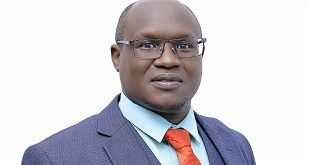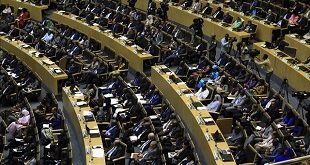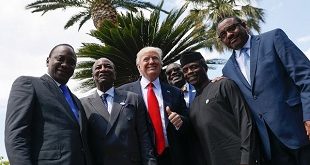
By Ivan Rugambwa
Together with his proposed private Members Bill on extending the age limit of judges, MP Eddie Kwizera has been the subject of debate for close to a month now. The Independent’s Ivan Rugambwa sought him out to explain, the intentions of his bill.
What is the aim of this Bill?
During a survey, we found that there is serious shortage of labour in professional bodies like the judiciary. Our constitution under Article 144 gives parliament authority to prescribe the age limit of judicial officers, while Article 142 gives the President the power to re-appoint retired judges but you have heard the noise from politicians and civil Society when the President recently re-appointed retired Chief Justice Benjamin Odoki back to the bench.
To avoid all this controversy, let parliament increase the retirement age of judges from let’s say the current 70 years for supreme court judges to 75, and High court judges from 65 to 70 years.
You talk of professionals, but your Bill seems to concentrate only on the judiciary, and there is even rumour that it was for the benefit of one-man (Justice Odoki)
No, no no. Those criticising the Bill are doing so out of Ignorance. We are also doing research and we intend to address other sectors like the medical sector, engineering and agricultural research. We packed great interest in Judiciary because there has always been delayed justice, which tantamounts to denied justice.
You find that each judge in the high court of Uganda has about 736 pending. In the land division only, each judge has 3000 cases plus. Yet in the same court, you find that the rate of retiring judges is not matched by those that are coming in.
Don’t you think that that is a problem of the appointing authority, where names are forwarded to him by the Service Commission, but he delays to act?

Of course that is the other problem; non-compliance to the constitutional demands or directives. That problem should have been addressed under Article 150(2) of the constitution, which would regulate the relationship between the Judicial Service Commission and the President.
It would say that, the commission shall send the names to the president, and the president would have a specified period of time in which he is expected to act on those names. But this law is not in place, and so that is the other matter that we are handling. Why should the President stay with names for over the year, when there is such scarcity of judicial officers?
So why was that not your first concern since we agree that most of the challenges you talk about accrue from that problem?
This one is being addressed. Another one that is being addressed is the number of judges that can be appointed. The constitutional provision states that, “Such a number of judges shall be appointed as Parliament may prescribe.”
So far, the prescribed number of judges is only 50. But we are preparing to move a motion in parliament as a result of our consultations and research to increase the number of judges that can be appointed to about 80. So our duty is not only fixed on only the issue of age. So we are looking at how better we can deliver justice in Uganda.
Shouldn’t those been more worthy causes to pursue than concentrating on age?
We have carried out serious research concerning all these issues, which has and continues to enrich and contribute to our Bill.
So how far have you gone with you research?
The research has shown that there is a problem in the Judiciary ranging the number of judicial officers, their welfare and the issue of case backlog. It is good that also government has now realised the need to address this problem with the President now invoking Article 142, which allows him to re-appoint judges.
Is this Uganda’s most urgent need?
Yes, it may not be the most urgent, but it’s urgent if you look at people who have been in Luzira Prison for 4-5 years on remand without trial. People are losing property, money in town, they run to courts, but their issues are not resolved in time. Human rights of suspects are being violated, because of inefficiency that can easily be corrected.
How does increasing the retirement age fit in a country where 80% of the population is youth, and 78% of that number is unemployed?
Everybody would want everyone to be employed but not everyone can be employed in these professional bodies. Secondly, those who are professionals are employed.
But there are qualified Ugandans who would love to occupy even the few available slots in public sector but are being denied the opportunity by the same old people for whom you are advocating retirement age increment.
How many have shown interest? Recently government advertised for 28 vacancies in the judiciary, and only 40 people applied. If the unemployed are very many, why didn’t we see a big number of qualified lawyers applying? We expected about 1000 people to apply, but only 40 people applied, of which 28 were appointed judges.
Uganda’s life expectancy is 54 years for men and 52 for women. So how does your Bill fit into this picture?
Life expectancy being at 54 does not mean that all people will die at 54. We are not increasing the age limit for those who will have died. We are talking about people who are still able and willing to serve, in the event that there is shortage of human resource like there is today.
Concerning Youth unemployment, the World Bank report of 2008, warned that unless the Uganda government upped its game in creating employment for the youth, they would be tempted to engage in acts of violence and other related evils. Doesn’t this scare you?
It does. But job creation starts in primary, where you shape children and you give them proper career guidance because there is no engineer or medical doctor who is on the street. We must make sure that the scope for private sector is wide, because most government jobs are fixed. The government can create an environment for the private sector to flourish, and people are paid better. That is what we call job creation.
Is the government doing that?
Absolutely although it cannot satisfy everybody. If look at the level of investment in the private sector today compared to say 5 or 10 years ago, you will notice this improvement. The number of employees has also increased. If you did this research, you would see the number of law firms, hotels, construction companies and many others that that have sprung up.
But statistics show that out of 50,000 graduates that graduate every year, only 5000 can find employment.
You see, what we call unemployment is when someone is qualified for the job, willing to work, but he or she cannot find the job. But that is not the case here. For example there are some districts like Kabale where you find that the district engineer is an Agricultural officer.
Why, because engineers are not there. In Uganda National Roads Authority, they are looking for engineers. Then those who graduate, they should learn to be job makers and not seekers because government cannot employ all of them.
The idea that your Bill is designed to enable the President to later tilt the age limit beyond the 75-year retirement bar has been making rounds through public fora. What’s your take on that?
That is the greatest challenge we have faced. Because the political mood is that the president has over stayed in power, every issue is now being viewed with suspicion. Because there are no longer term limits to the presidency, people now look at the 75 age limit as the only thing that can stop the president from seeking another term in office.
And the anxiety is that when he makes 75 years, he may want to change it. But our message is that our bill is not addressing the political questions although we can read the political mood. But our idea is that actually, even those politicians are hypocrites.
Because why should the age limit apply to only one Politician called Museveni. Why should the President have a minister over 75 years old, when he himself is not allowed to exceed the age limit? What about the MPs, what about the Speaker? So these are the issues we are looking at. If we are to harmonise the retirement age, then it should apply to all politicians.
So in your view, why has the Bill received such opposition?
The problem in Uganda today, everything is being politicised, and I think this is very unhealthy for our country. When the bill was first discussed in Public fora, speculation was that it was being initiated by Mr. Museveni. Yet I find this much unfounded talk, because it’s now 2013, and yet constitutionally, Museveni is allowed to contest in 2016. So he really does not need this bill to run.
So, what’s your take on the recent re-appointment of Justice Benjamin Odoki as a Supreme Court judge by the President?
Odoki’s re-appointment was not part of my research. But in the appointment of the Chief Justice, many things are considered. Issues like regional balancing, issues of the law and many others. If the president has appointed a retired Chief Justice, our lawyers should help us by pointing out which law has been broken other than being quick to debate politics.
There have been claims that the issue of retirement age of Judges is already dealt with in the constitution, and that therefore any attempt to amend the provisions would require a ‘constitutional Amendment Bill’, and not a Private Members Bill like Yours.
I think those who are saying that are misunderstanding our Bill. This Bill is a direction of the constitution under article 144-Tenure of office of Judicial Officers. So it cannot be an amendment of the constitution.
It is enforced by article 142, which says that although the retirement age will be prescribed by Parliament, the President can re- appoint retired judges where necessary. So this Bill just seeks to operationalise the constitutional provisions, which does not call for a constitutional amendment.
 The Independent Uganda: You get the Truth we Pay the Price
The Independent Uganda: You get the Truth we Pay the Price


